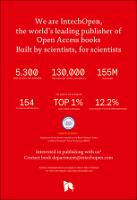Chapter Selected endothelial responses after ionizing radiation exposure
Author(s)
Aerts, An
Ramadan, Raghda
MohammedBenotmane, Abderrafi
Baselet, Bjorn
Sonveaux, Pierre
Baatout, Sarah
Language
EnglishAbstract
Along with the development of novel chemotherapeutic agents, radiation therapy has revolutionized the prognosis of patients with various cancers. However, with a longer life expectancy, radiation treatment-related comorbidity, like cardiovascular diseases (CVDs), becomes an issue for cancer survivors. In addition, exposure to X-rays for medical diagnostics is dramatically increasing at the present times. A pressing question is whether or not exposure to these very low doses can cause health damage. Below 0.5 gray (Gy), an increased risk cannot be evidenced by epidemiology alone, and in vitro and in vivo mechanistic studies focused on the elucidation of molecular signaling pathways are needed. Given the critical role of the endothelium in normal vascular functions, a complete understanding of radiation-induced endothelial dysfunction is crucial. In this way, the current radiation protection system could be refined if needed, making it possible to more accurately assess the cardiovascular risk in the low-dose region. Finally, radiation-induced CVD, like CVD in general, is a progressive disorder that may take years to decades to manifest. Therefore, experimental studies are warranted to fulfill the urgent need to identify noninvasive biomarkers for an early detection and potential interventions—together with a healthy lifestyle—that may prevent or mitigate these adverse effects.
Keywords
ionizing radiation, radiation therapy, X-ray diagnostics, cardiovascular disease, atherosclerosis, endothelial dysfunction, inflammation, DNA damage, apoptosis, cell cycle, oxidative stress, mitochondrial dysfunction and metabolic changes, premature senescence, intercellular communicationDOI
10.5772/intechopen.72386Publisher
InTechOpenPublisher website
https://www.intechopen.com/Publication date and place
2018Classification
Cardiovascular medicine


 Download
Download